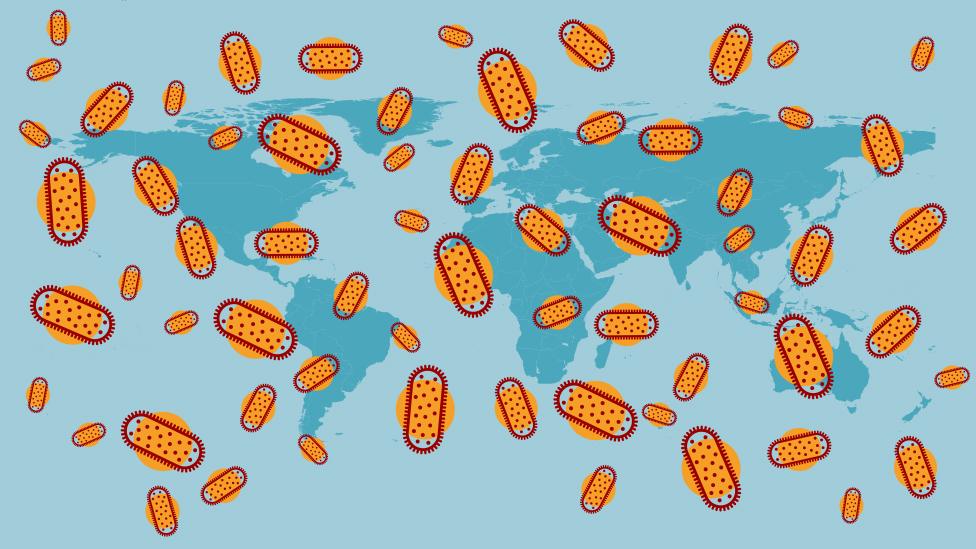Coronavirus: Child vaccine warning over 'other deadly diseases'
- Published
Dr Phil White say he wished people would be "afraid of other illnesses which are equally deadly"
Child vaccinations must continue as normal to avoid other "deadly" diseases, a leading GP has warned.
Public Health Wales says it has seen a small drop in routine vaccination numbers since the coronavirus pandemic.
Immunisation jabs are seen as "crucial" to preventing outbreaks of diseases such as measles and meningitis.
Dr Phil White, of the General Practitioners Committee (GPC) Wales, said people fearing Covid-19 should be "equally afraid" of those illnesses.
The childhood immunisation programme protects against diseases including whooping cough, measles, meningitis and pneumonia.
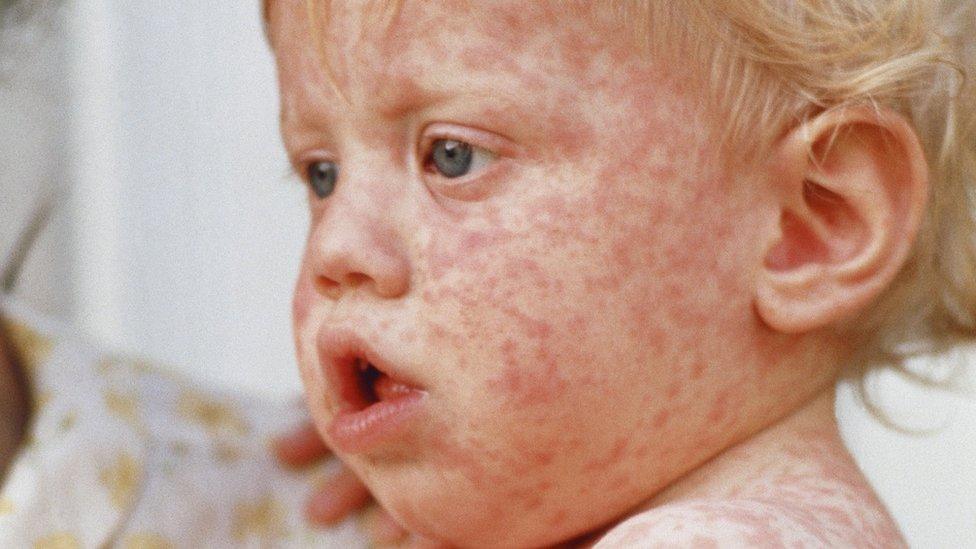
Diseases such as measles can be deadly
PHW has yet to gather exact figures but Dr White, GPC Wales' lead on vaccines, said anecdotal evidence showed some people were "reluctant" to attend surgeries.
"People are afraid of coronavirus but I wish they would be equally afraid of other illnesses which are equally deadly," he said.
"The biggest issue is people afraid to come to the surgery to get the vaccine.
"We could end up in a position where we get an infectious disease outbreak at the end of this because of a large cohort of unvaccinated children.
"The older illnesses that we have wiped out are equally deadly and it is vital that we maintain the level of vaccination that protects the community."
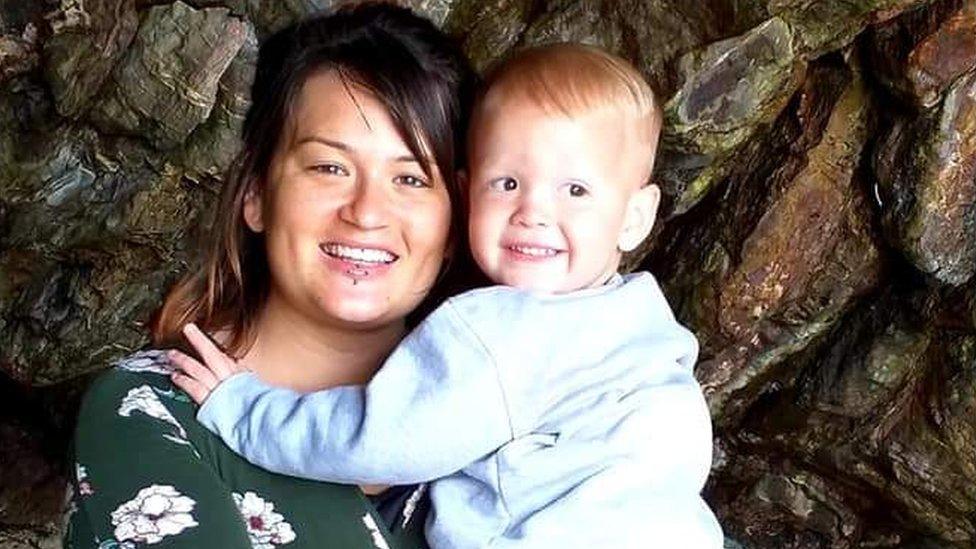
Alanna Clarke said parents face a difficult decision
Alanna Clarke, 25, from Swansea, initially decided not to take her three-year-old son Lyle for a vaccination appointment in March because she was worried about using public transport and attending the clinic.
"It was hard to know how to prevent my son from getting ill," she said.
"These vaccinations prevent diseases in children, but then how do I protect him from coronavirus?"
She has since taken Lyle for his immunisations after speaking to a health visitor but said it was a difficult decision.
"I just went around in my head really trying to think of the best thing to do for him [in case] anything were to happen to him that could have been my fault," she said.
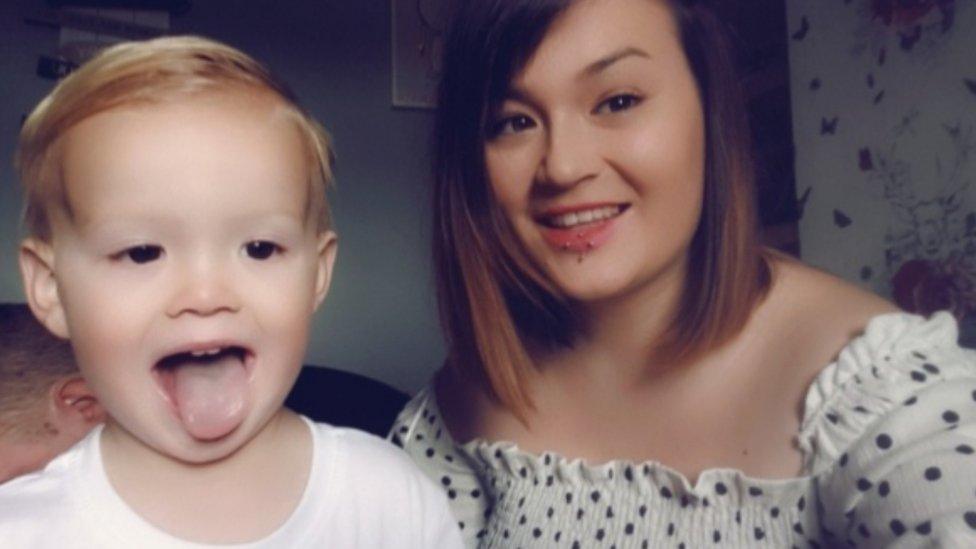
Lyle has now been vaccinated
The Welsh Government wrote to GPs in March telling them that continuing immunisations was a priority during the response to coronavirus.
PHW said the drop-off in the number of parents attending vaccinations could be due to families self-isolating or a lack of public transport.
However it admitted the fall was a "concern" as children have previously died due to a decline in vaccinations.
Dr Richard Roberts, head of the vaccine preventable diseases programme for PHW, said: "You don't need very much of a drop for some of these diseases, like pertussis (whooping cough), meningitis, measles that are currently under control to affect more children."
Some surgeries have started to hold immunisation clinics where children are seen separately.
In Gwynedd and Anglesey, Betsi Cadwaladr University Health Board (BCUHB) has been holding one-in-one-out sessions in "clean" spaces, such as schools and village halls.
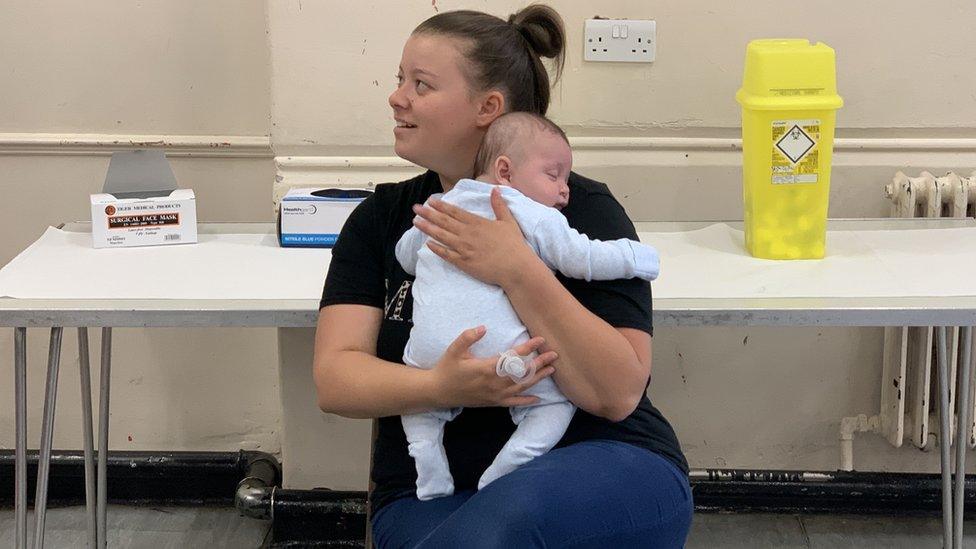
Parents across north Wales are being offered immunisation clinics for children only
Catrin Macey, the clinical lead nurse for primary care, said staff at the sessions were observing social distancing rules and using personal protective equipment.
"A lot of parents are concerned to bring their young children out," she said.
"[But] it's really important that we get these children immunised at the right time.
"We need to ensure we have herd immunity to protect those vulnerable babies who are unable to be immunised."
While infant, pre-school and pregnancy vaccinations are continuing, some immunisation programmes have been paused.
This includes school-age programmes, such as teenage boosters and human papillomavirus (HPV) vaccines, the shingles vaccination for those aged between 70 and 79, and travel vaccinations.

A SIMPLE GUIDE: How do I protect myself?
AVOIDING CONTACT: The rules on self-isolation and exercise
HOPE AND LOSS: Your coronavirus stories

- Published30 September 2019
- Published29 August 2019
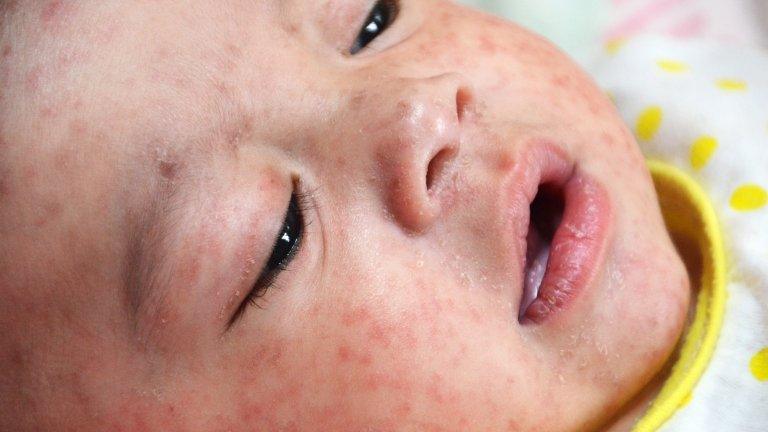
- Published19 June 2019
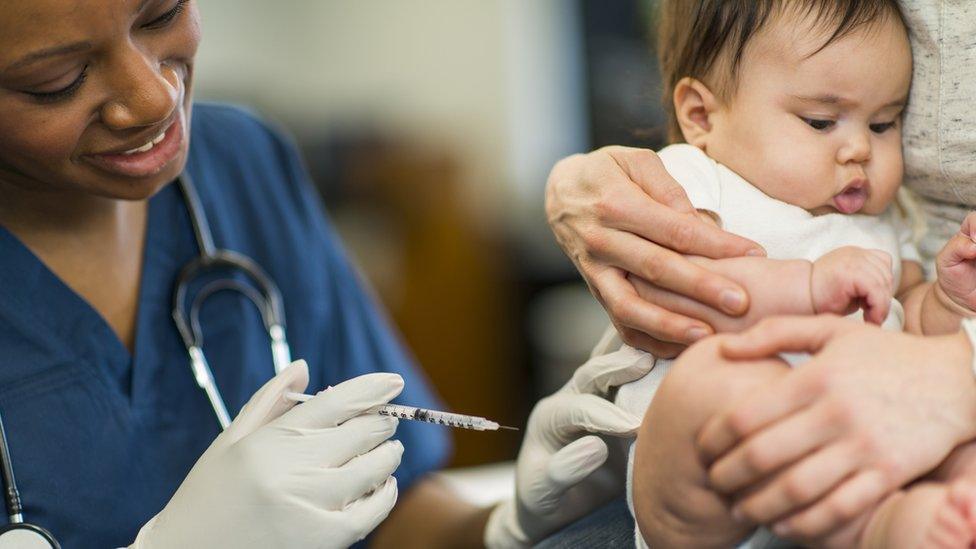
- Published19 June 2019
